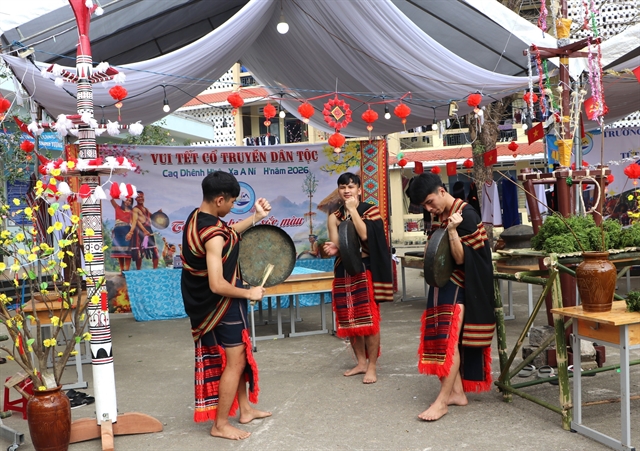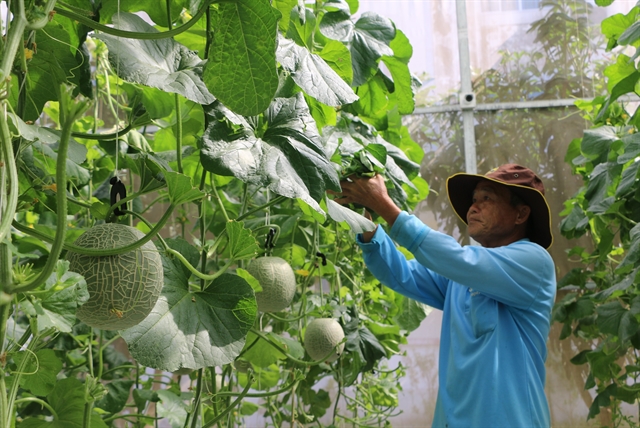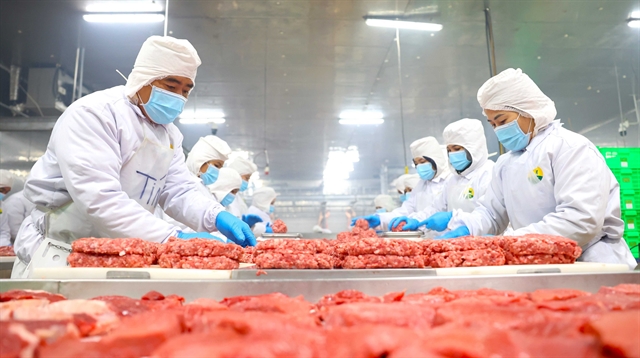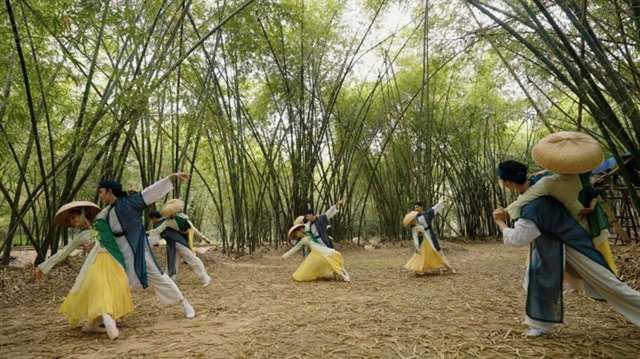 Society
Society

More farmers in the Cửu Long (Mekong) Delta province of Bạc Liêu have restructured their crops and adopted advanced farming techniques to improve yield, quality and value.

|
| Honeydew melon grown in a net house in Bạc Liêu Province. – VNA/VNS Photo Tuấn Kiệt |
BẠC LIÊU – More farmers in the Cửu Long (Mekong) Delta province of Bạc Liêu have restructured their crops and adopted advanced farming techniques to improve yield, quality and value.
Three years ago Phạm Thanh Phương was the first farmer in Vĩnh Lợi District’s Châu Hưng Commune to use nets to cover his jujube orchard and protect the fruits from pests, especially medfly.
He spent nearly VNĐ200 million (US$8,800) on the nets and other materials.
He harvests two main jujube crops a year with average yields of 8 – 10 tonnes each, and earns VNĐ300 million ($13,200) a year, he said.
Consumers often visit his orchard and buy the fruit for VNĐ5,000 a kilogramme higher than market prices since his jujubes are organic.
With support from the province Farmers Association, he has obtained origin traceability stamp for his fruit.
The association has helped farmers adopt high-tech models for farming fruits, rice, vegetables, and livestock.
Last year its members built 15 new polygreen houses to grow honeydew melon, cucumber, tomato, and other crops.
The province’s Farmers Support Fund has provided soft loans worth a total of VNĐ22 billion ($970,000) to nearly 1,000 farmers to adopt advanced techniques.
The association is also working with the Việt Nam Bank for Social Policies and the Việt Nam Bank for Agriculture and Rural Development to get them loans.
High-tech farming models are popular for breeding shrimp, and they include industrial farming with biofloc technology and two-stage farming.
Targets
Bạc Liêu plans to build a high-tech agricultural zone for shrimp cultivation by 2025.
It plans to achieve annual output of 600,000 tonnes of seafood and 1.17 million tonnes of rice by 2025.
Phạm Văn Thiều, chairman of the province People’s Committee, said to achieve the targets zoning would be tweaked to improve the efficient use of agricultural lands.
The province would solicit investment in agriculture and rural development, focusing on restructuring to cope with climate change, he said.
It had been restructuring to develop economies of scale along with processing and tourism.
Lưu Hoàng Ly, director of the department, said the province planned to develop major projects to mitigate the effects of climate change, including erosion prevention works along rivers and sea and sluices to keep out saltwater intrusion in rivers.
Other works included infrastructure for developing shrimp – rice farming in Phước Long and Hồng Dân districts and Giá Rai Town.
Shrimp – rice farming
Farmers in the province are harvesting a bumper rice crop in shrimp – rice fields and getting high prices thanks to favourable weather and plenty of rain.
They are harvesting eight to 10 tonnes per hectare and selling them for VNĐ8,000 a kilogramme to earn VNĐ50 – 60 million ($2,200 – 2,700), according to farmers.
Hà Văn Tánh, who farms rice and shrimp in Giá Rai’s Phong Thạnh Đông Commune, said: “At the beginning of this rice crop my family was worried because the prices of fertilisers and pesticides increased a lot. However we still earned a profit due to the high selling prices.”
Farmers in Giá Rai planted more than 3,000ha of ST 24 and ST 25 rice, two of the world’s best varieties, on 80 per cent of the area.
The town government provided them with a 50 per cent subsidy for buying seeds for sowing.
Seeing the high incomes farmers are earning from the shrimp – rice model, the town has decided to expand the area this year.
Under the model, farmers grow one rice crop during the rainy season and breed shrimp during the dry season.
Farmers also strictly comply with sowing schedules and use fertilisers and pesticides as instructed, according to the department. – VNS




